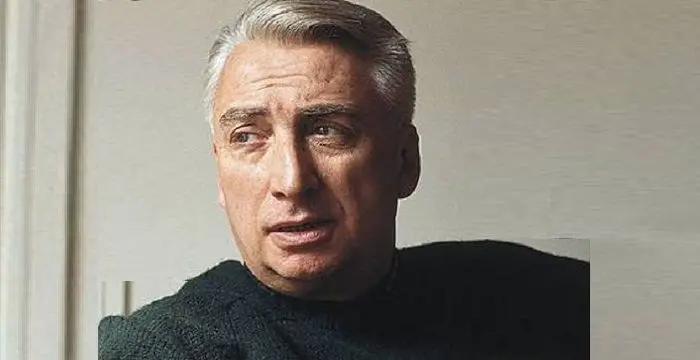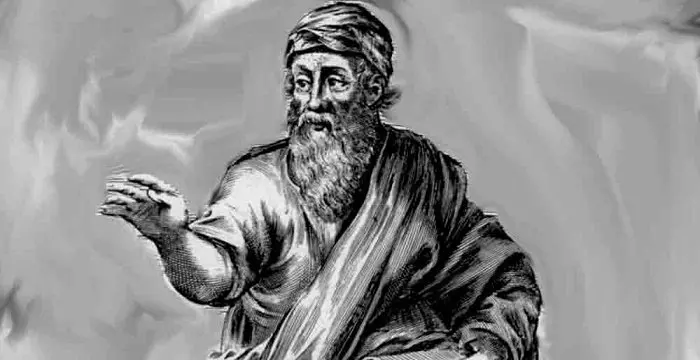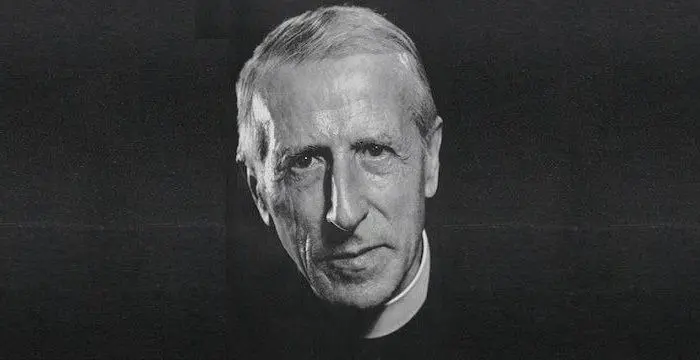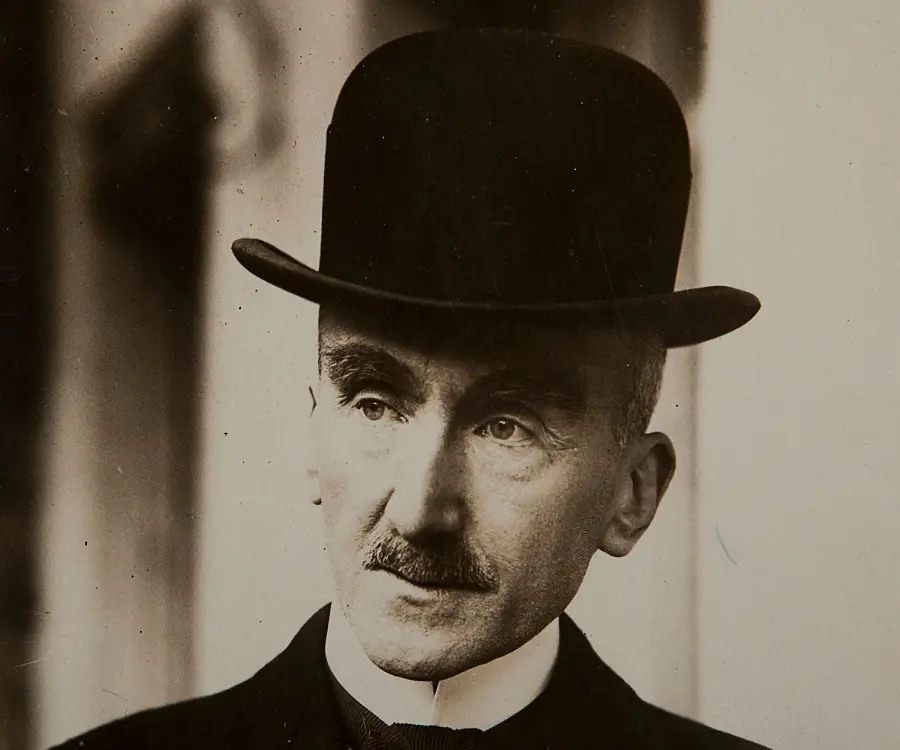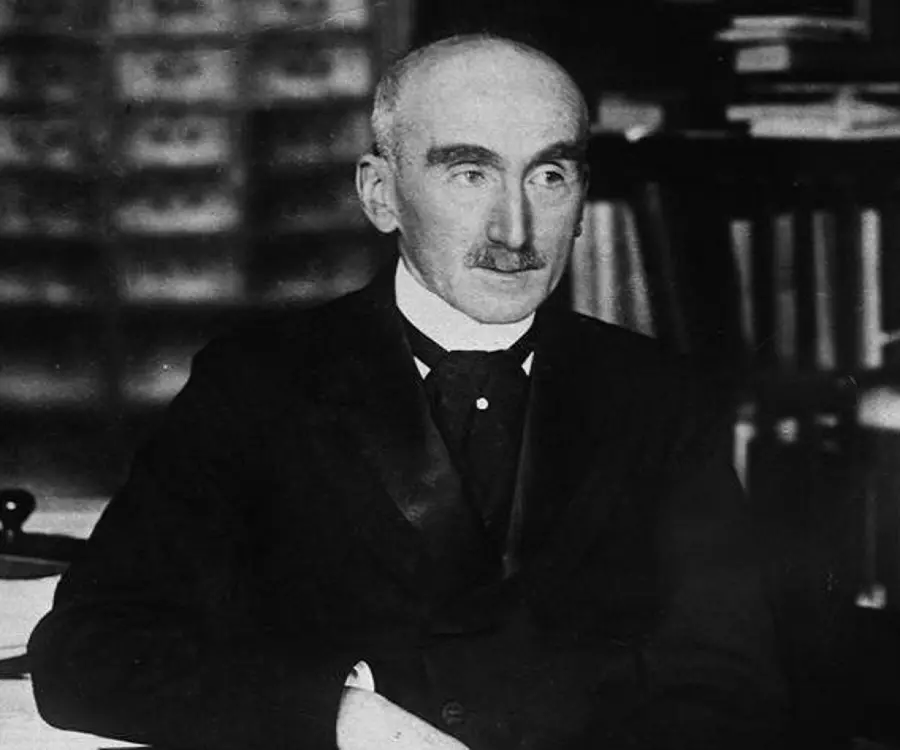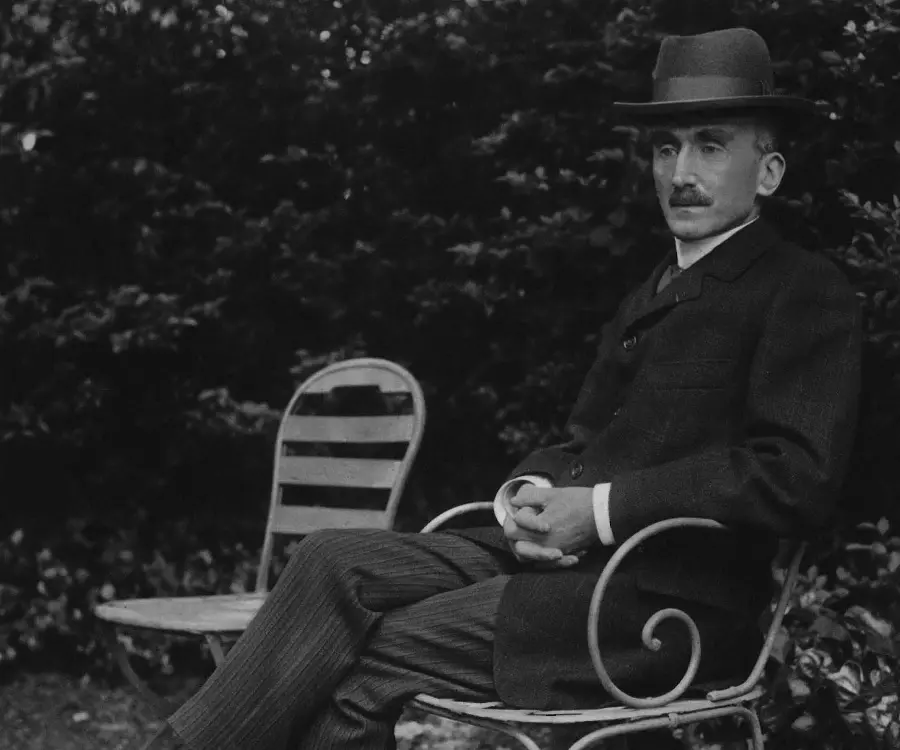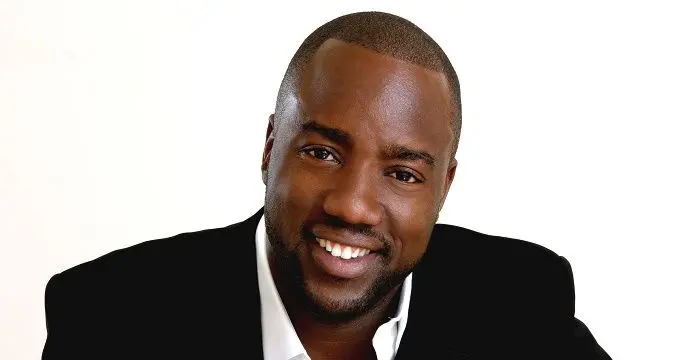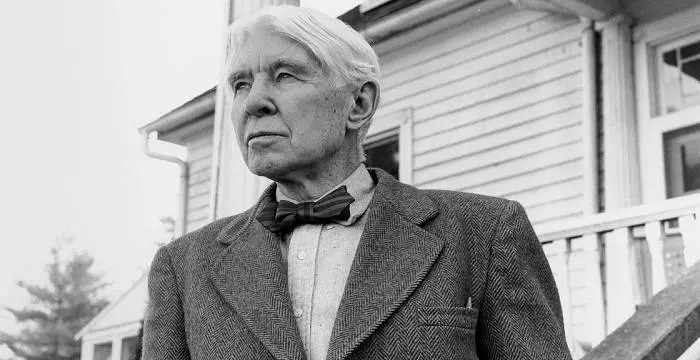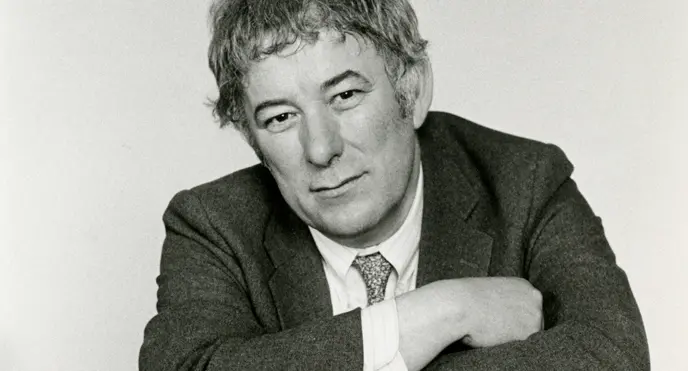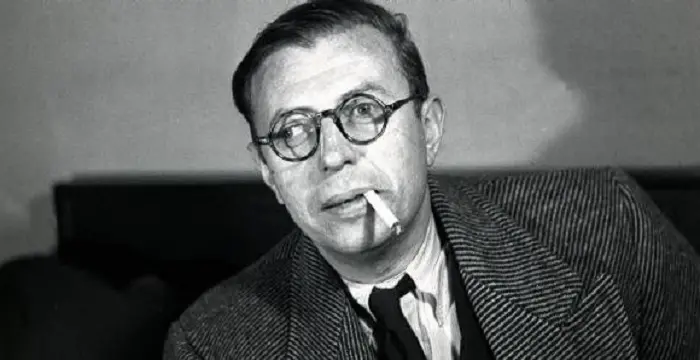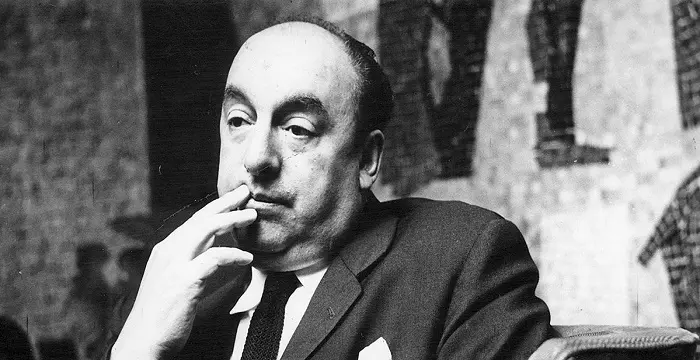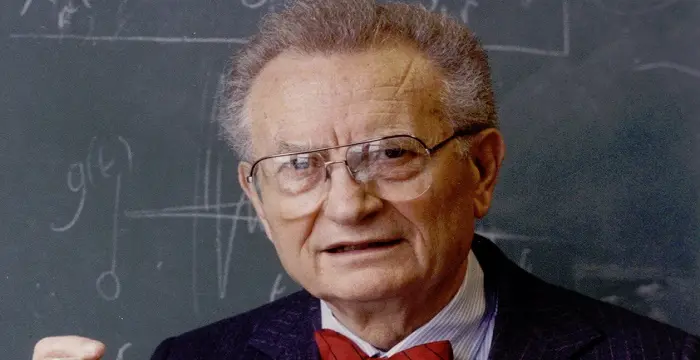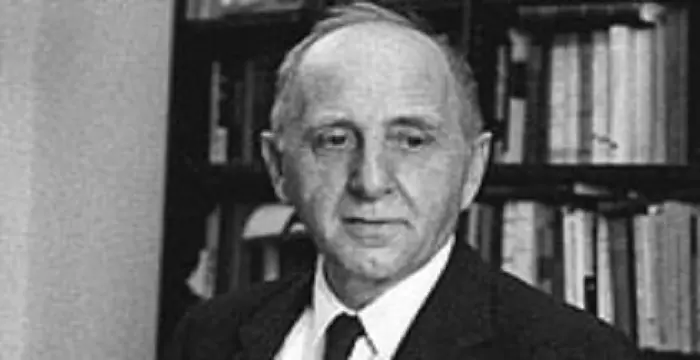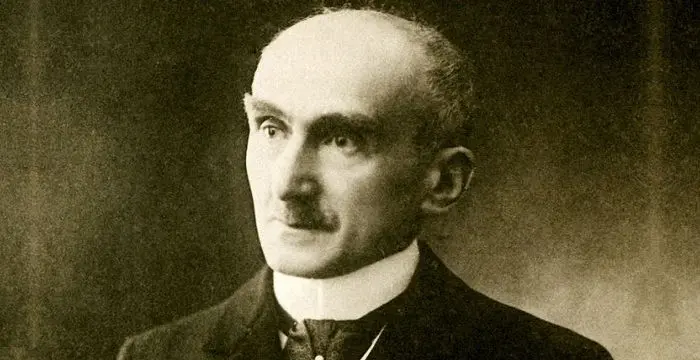
Henri Bergson - Writers, Timeline and Personal Life
Henri Bergson's Personal Details
Henri-Louis Bergson was a well-known philosopher who won the 1927 Nobel Prize in Literature
| Information | Detail |
|---|---|
| Birthday | October 18, 1859 |
| Died on | January 4, 1941 |
| Nationality | French |
| Famous | Nobel Laureates In Literature, Intellectuals & Academics, Philosophers, Essayists, Philosophers, Writers |
| Spouses | Louise Neuberger |
| Siblings | Moina Mathers |
| Known as | Henri-Louis Bergson |
| Childrens | Jeanne |
| Universities |
|
| Birth Place | Paris |
| Religion | Judaism |
| Gender | Male |
| Father | Michał Bergson |
| Mother | Katherine Levison |
| Sun Sign | Libra |
| Born in | Paris |
| Famous as | Philosopher and Writer |
| Died at Age | 81 |
// Famous Philosophers
Roland Barthes
Roland Barthes was a French literary theorist, critic and semiotician. This biography profiles his childhood, life, works, achievements and timeline.
Pythagoras
Pythagoras of Samos was a Greek mathematician and philosopher. Read on to learn more about Pythagoras’s profile, childhood, life and timeline.
Pierre Teilhard de Chardin
Pierre Teilhard de Chardin was a famous French philosopher and a priest who was also known for his controversial writings. Read more about the life and works of this philosopher in the following article.
Henri Bergson's photo
Who is Henri Bergson?
Henri-Louis Bergson was a well-known philosopher born in the nineteenth century France in a Jewish family of considerable repute. Although he excelled in science and mathematics at school he later opted for humanities and went on to become one of the most influential philosophers of his era. His doctoral thesis, ‘Time and Free Will: An Essay on the Immediate Data of Consciousness’, later published in book form, earned him wide acclaim. Later he penned a number of major and minor works, among which ‘Creative Evolution’ became an instant hit. Although Bergson did not give rise to any school of philosophy, many renowned philosophers were influenced by his thoughts. However, he was more than just a philosopher. In 1927, he was awarded the Nobel Prize in Literature for “his rich and vitalizing ideas and the brilliant skill with which they have been presented". He was also a man of great principle and courage. Although he was planning to convert to Roman Catholic faith, he changed his mind when he foresaw that Jews may soon be persecuted. Moreover, he arose from his sick bed to register as Jew when that was made mandatory. This was in spite of the fact that he was exempted from such registration.
// Famous Writers
Alan Watts
Alan Watts was a famous British philosopher known for his Zen teachings and interpretations of Eastern philosophy. Read more about this great philosopher in the following article.
Malik Yoba
Malik Yoba is an American actor, writer, and singer who made his film debut in 1993 with ‘Cool Runnings.’ Check out this biography to know about his childhood, family life, achievements and fun facts about him.
Carl Sandburg
Carl Sandburg was a famous multiple Pulitzer Prize winner writer and poet. Read more about the life and the works of this prolific writer in the following article.
Childhood & Early Years
Henri-Louis Bergson was born in Paris on October 18, 1859, in a famous Jewish entrepreneur family. Originally known as Berekson, they were of Polish descent. Henri’s father, Michal Bergson was Warsaw born composer and pianist of considerable repute.
His mother, Katherine Levison, had an Irish Jewish background. She was the daughter of a Jewish doctor from Yorkshire. Young Henri learned English from her. He also had a sister named Mina, who later married the English occult author Samuel Liddell MacGregor Mathers.
After his birth, the family moved to England; but returned to France when he was nine years old. In 1868, he was admitted to Lycée Condorcet in Paris and studied there till 1878. At school he was much appreciated for his knowledge of science and mathematics and won several prizes.
After graduating from school in 1878, he enrolled at École Normale Supérieure in Paris and to his teachers’ dismay opted for humanities. During this period, he came under the influence of philosophers like Spencer, Mill and Darwin. In addition, he also learned to appreciate Latin and Greek literature.
Career
Henri Bergson passed out from École Normale Supérieure in 1881. In the same year he was appointed as a teacher at the lycée in Angers. Two years later, he joined Lycée Blaise-Pascal in Clermont-Ferrand and taught there for five years.
Along with teaching, he continued with his studies and research work. His first work, ‘On Unconscious Simulation in States of Hypnosis’ was published in the Revue Philosophique in 1886. In this article, he had put down his observations at hypnosis session.
For his doctoral degree, he submitted a thesis on ‘Essai sur les données immédiates de la conscience‘ (Time and Free Will: An Essay on the Immediate Data of Consciousness) along with another short thesis on Aristotle, ‘Quid Aristoteles de loco senserit’ (On the Concept of Place in Aristotle), in Latin.
In 1888, he went back to Paris and for few months and taught at College Rollin. Later he joined Lycée Henri-IV as a teacher and taught there for eight years. In 1889, he was awarded his doctoral degree by University of Paris. His thesis ‘Time and Will’ was first published as a book in the same year.
His second major work, ‘Matière et mémoire’ (Matter and Memory) was published in 1896. The book was the result of a detailed research undertaken over a period of time.
In 1898, he joined his alma mater, École Normale Supérieure, as Maître de conférences (associate professor). Very shortly, he was promoted to the post of Professeur des universities and became a full professor.
In 1900, he was recruited as a Professor at Collège de France, a renowned educational and research center in Paris. Very soon, he was appointed to the Chair of Greek and Latin Philosophy of the college.
In 1900, he attended first International Congress of Philosophy held in Paris and read a short but important paper titled ‘Psychological Origins of the Belief in the Law of Causality’. This was also the year when his well-known book ‘Le rire, Essai sur la signification du comique’ was published.
In 1901, he was elected as a member of the Académie des sciences morales et politiques, one of the five academies of Institut de France.
In 1904, he held the Chair of Modern Philosophy. Meanwhile he continued publishing many papers, out of which ‘Introduction à la Métaphysique’ (1903) is most important.
In 1907, he published his third major work, titled, ‘L'Évolution créatrice’ (Creative Evolution). The book, which provides a different explanation for Darwin’s theory, became so popular that within 10 years it sold 21 editions.
In 1908, Bergson travelled to England. There he met William James, an American philosopher and psychologist. The two became good friends. It was James who introduced Bergson to the English as well as American public.
He next went to Italy to attend International Congress of Philosophy. He also made several visits to England. His lectures offered new perspective and were generally short and lucid, which propelled the audience to go through his more detailed works.
In early 1913, he went to America on the invitation of the University of Columbia. There he visited number of cities and at each place his lectures were well received. In May 1913, he went back to England and accepted the post of the President of British Society for Psychical Research.
In 1914, he retired from the active duty from Collège de France so that he could concentrate on his academic works. At the same time, he continued to give lectures on various issues and did not stop even when the World War I erupted.
Later in 1919, he published a collection of these lecture in a book form. Titled 'L'Énergie spirituelle’, the book became highly popular. Later it was translated into English as ‘Mind Energy’.
Meanwhile, all his major works had started being translated into various European languages such as English, German, Italian, Danish, Swedish, Hungarian, Polish and Russian. At the same time, the Roman Catholic Church banned three of his books on the charge of pantheism.
In 1932, Bergson published his next major work, ‘Les Deux Sources de la morale et de la religion’ (The Two Sources of Morality and Religion). In this book, however, Bergson had come closer to the conventional notion of God as propagated by the Roman Catholic Church.
By 1937 he began toying with the idea of converting to the Catholic faith. In the same year, his last book, 'La Pensée et le mouvant' (The Creative Mind: An Introduction to Metaphysics) was published.
Although his works were later criticized by some philosophers, many more have praised his theories as novel and thought provoking. His influence is especially apparent on the works of notable writers like William James, George Santayana and Alfred North Whitehead.
Major Works
‘L'Évolution créatrice’ (Creative Evolution), published in 1907, is the most popular among Bergson’s four major works. Through this book, Bergson proposed that the evolution is not a mechanical, but a creative process and it should be seen as a continued existence that constantly develop and generate new forms.
’Le rire’, Essai sur la signification du comique’ (Laughter, an essay on the meaning of the comic), published in 1900, is a collection of three essays through which he tried to determine the process of comic, not its effects. Though considered one of his minor works, it gives an insight into Bergson’s view about life.
Awards & Achievements
In 1927, Henri-Louis Bergson was awarded the Nobel Prize in Literature. Although he was basically a philosopher, it was his literary style that earned him this coveted prize.
In 1930, he was awarded Grand-Croix de la Legion d'honneur by the French government. It is the highest honor conferred by the government of France.
Personal Life
In 1891, Henri Bergson married Louise Neuberger, a cousin of French novelist Marcel Proust. They had a daughter named Jeanne. Unfortunately she was born deaf.
Although born a Jewish he later thought of converting to Roman Catholic faith because in it he saw ‘complete fulfillment of Judaism’. However, he had an inkling about ‘a formidable wave of anti-Semitism about to break upon the world’. Since he wanted to be on the side of the persecuted he did not change his faith.
Moreover to make his point, he queued up to register as a Jew when the Vichy government made it mandatory. Although he was exempted from such enrolment he refused to take it.
By then, his health had broken down. In spite of that he rose from his sick bed and stood in the queue. It is said that, while waiting in the line, Bergson caught cold. He ultimately died from it on January 4, 1941.
// Famous Nobel Laureates In Literature
Seamus Heaney
Nobel Laureate Seamus Heaney was an Irish poet, playwright and translator. Know about his profile, childhood, life and timeline in the biography below.
Jean-Paul Sartre
Jean-Paul Sartre was a great existentialist philosopher of the 20th century. Check out this biography to know about his childhood, family life, achievements and other facts related to his life.
Pablo Neruda
Pablo Neruda was a Chilean poet, politician and Nobel laureate. Go through this biography to learn more about his profile, childhood, life and timeline.
Henri Bergson's awards
| Year | Name | Award |
|---|---|---|
Other | ||
| 0 | Nobel Prize in Literature | |
Henri Bergson biography timelines
- // 18th Oct 1859Henri-Louis Bergson was born in Paris on October 18, 1859, in a famous Jewish entrepreneur family. Originally known as Berekson, they were of Polish descent. Henri’s father, Michal Bergson was Warsaw born composer and pianist of considerable repute.
- // 1868 To 1878After his birth, the family moved to England; but returned to France when he was nine years old. In 1868, he was admitted to Lycée Condorcet in Paris and studied there till 1878. At school he was much appreciated for his knowledge of science and mathematics and won several prizes.
- // 1878After graduating from school in 1878, he enrolled at École Normale Supérieure in Paris and to his teachers’ dismay opted for humanities. During this period, he came under the influence of philosophers like Spencer, Mill and Darwin. In addition, he also learned to appreciate Latin and Greek literature.
- // 1881Henri Bergson passed out from École Normale Supérieure in 1881. In the same year he was appointed as a teacher at the lycée in Angers. Two years later, he joined Lycée Blaise-Pascal in Clermont-Ferrand and taught there for five years.
- // 1886Along with teaching, he continued with his studies and research work. His first work, ‘On Unconscious Simulation in States of Hypnosis’ was published in the Revue Philosophique in 1886. In this article, he had put down his observations at hypnosis session.
- // 1888 To 1889In 1888, he went back to Paris and for few months and taught at College Rollin. Later he joined Lycée Henri-IV as a teacher and taught there for eight years. In 1889, he was awarded his doctoral degree by University of Paris. His thesis ‘Time and Will’ was first published as a book in the same year.
- // 1891In 1891, Henri Bergson married Louise Neuberger, a cousin of French novelist Marcel Proust. They had a daughter named Jeanne. Unfortunately she was born deaf.
- // 1896His second major work, ‘Matière et mémoire’ (Matter and Memory) was published in 1896. The book was the result of a detailed research undertaken over a period of time.
- // 1898In 1898, he joined his alma mater, École Normale Supérieure, as Maître de conférences (associate professor). Very shortly, he was promoted to the post of Professeur des universities and became a full professor.
- // 1900In 1900, he was recruited as a Professor at Collège de France, a renowned educational and research center in Paris. Very soon, he was appointed to the Chair of Greek and Latin Philosophy of the college.
- // 1900In 1900, he attended first International Congress of Philosophy held in Paris and read a short but important paper titled ‘Psychological Origins of the Belief in the Law of Causality’. This was also the year when his well-known book ‘Le rire, Essai sur la signification du comique’ was published.
- // 1900’Le rire’, Essai sur la signification du comique’ (Laughter, an essay on the meaning of the comic), published in 1900, is a collection of three essays through which he tried to determine the process of comic, not its effects. Though considered one of his minor works, it gives an insight into Bergson’s view about life.
- // 1901In 1901, he was elected as a member of the Académie des sciences morales et politiques, one of the five academies of Institut de France.
- // 1903 To 1904In 1904, he held the Chair of Modern Philosophy. Meanwhile he continued publishing many papers, out of which ‘Introduction à la Métaphysique’ (1903) is most important.
- // 1907In 1907, he published his third major work, titled, ‘L'Évolution créatrice’ (Creative Evolution). The book, which provides a different explanation for Darwin’s theory, became so popular that within 10 years it sold 21 editions.
- // 1907‘L'Évolution créatrice’ (Creative Evolution), published in 1907, is the most popular among Bergson’s four major works. Through this book, Bergson proposed that the evolution is not a mechanical, but a creative process and it should be seen as a continued existence that constantly develop and generate new forms.
- // 1908In 1908, Bergson travelled to England. There he met William James, an American philosopher and psychologist. The two became good friends. It was James who introduced Bergson to the English as well as American public.
- // May 1913In early 1913, he went to America on the invitation of the University of Columbia. There he visited number of cities and at each place his lectures were well received. In May 1913, he went back to England and accepted the post of the President of British Society for Psychical Research.
- // 1914In 1914, he retired from the active duty from Collège de France so that he could concentrate on his academic works. At the same time, he continued to give lectures on various issues and did not stop even when the World War I erupted.
- // 1919Later in 1919, he published a collection of these lecture in a book form. Titled 'L'Énergie spirituelle’, the book became highly popular. Later it was translated into English as ‘Mind Energy’.
- // 1927In 1927, Henri-Louis Bergson was awarded the Nobel Prize in Literature. Although he was basically a philosopher, it was his literary style that earned him this coveted prize.
- // 1930In 1930, he was awarded Grand-Croix de la Legion d'honneur by the French government. It is the highest honor conferred by the government of France.
- // 1932In 1932, Bergson published his next major work, ‘Les Deux Sources de la morale et de la religion’ (The Two Sources of Morality and Religion). In this book, however, Bergson had come closer to the conventional notion of God as propagated by the Roman Catholic Church.
- // 1937By 1937 he began toying with the idea of converting to the Catholic faith. In the same year, his last book, 'La Pensée et le mouvant' (The Creative Mind: An Introduction to Metaphysics) was published.
- // 4th Jan 1941By then, his health had broken down. In spite of that he rose from his sick bed and stood in the queue. It is said that, while waiting in the line, Bergson caught cold. He ultimately died from it on January 4, 1941.
// Famous Intellectuals & Academics
Bertil Gotthard Ohlin
Bertil Gotthard Ohlin was a famous Swedish economist. This biography profiles his childhood, family life & achievements.
Emily Greene Balch
Emily Greene Balch was an American economist, sociologist and pacifist who won the 1946 Nobel Peace Prize. This biography of Emily Greene Balch provides detailed information about her childhood, life, achievements, works & timeline.
Martin Buber
One of the greatest philosophers to have ever walked on earth, Martin Buber contributions to philosophy is a long-standing one. Explore all about his profile, childhood, life and timeline here.
Paul Samuelson
Nobel laureate Paul Anthony Samuelson is referred to as the ‘Father of Modern Economics’. This biography profiles his childhood, life, career, achievements and interesting facts about him.
Lao Tzu (Laozi)
Lao Tzu was a legendary Chinese philosopher who wrote the important “Daodejing”. This biography profiles his childhood, life, career, achievements and timeline.
Simon Kuznets
Simon Kuznets was a noted Russian-American economist, statistician, demographer, and economic historian. Check out this biography to know about his childhood, family life, achievements and other facts related to his life.
Henri Bergson's FAQ
What is Henri Bergson birthday?
Henri Bergson was born at 1859-10-18
When was Henri Bergson died?
Henri Bergson was died at 1941-01-04
Where was Henri Bergson died?
Henri Bergson was died in Paris
Which age was Henri Bergson died?
Henri Bergson was died at age 81
Where is Henri Bergson's birth place?
Henri Bergson was born in Paris
What is Henri Bergson nationalities?
Henri Bergson's nationalities is French
Who is Henri Bergson spouses?
Henri Bergson's spouses is Louise Neuberger
Who is Henri Bergson siblings?
Henri Bergson's siblings is Moina Mathers
Who is Henri Bergson childrens?
Henri Bergson's childrens is Jeanne
What was Henri Bergson universities?
Henri Bergson studied at École Normale Supérieure, University of Toronto Mississauga, Lycée Condorcet
What is Henri Bergson's religion?
Henri Bergson's religion is Judaism
Who is Henri Bergson's father?
Henri Bergson's father is Michał Bergson
Who is Henri Bergson's mother?
Henri Bergson's mother is Katherine Levison
What is Henri Bergson's sun sign?
Henri Bergson is Libra
How famous is Henri Bergson?
Henri Bergson is famouse as Philosopher and Writer
